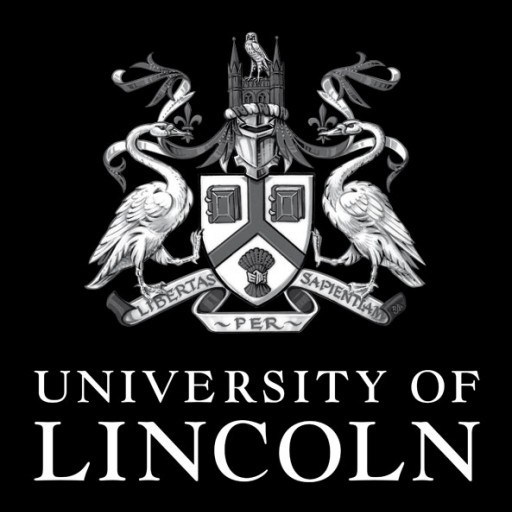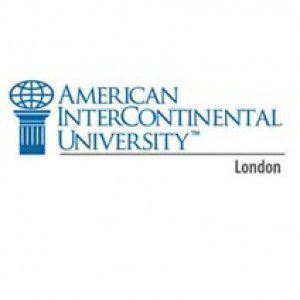International Business at the University of Lincoln is a comprehensive undergraduate degree programme designed to equip students with the knowledge, skills, and global perspective necessary to succeed in today’s dynamic international marketplace. The programme explores key areas such as international marketing, global trade, cross-cultural communication, international finance, and strategic management, providing a broad understanding of how businesses operate across different countries and cultures. Students will develop critical analytical skills and practical competencies through case studies, projects, and work placements, enabling them to navigate complex international business environments confidently. The curriculum emphasizes real-world applications, encouraging students to think strategically and adapt to the rapid changes in global economic trends. With opportunities for international field visits, guest lectures from industry experts, and collaborative projects with students from other countries, the programme fosters cultural awareness, teamwork, and problem-solving abilities. Graduates will be well-prepared for careers in multinational corporations, export-import companies, international consulting firms, and other organizations engaged in global commerce. The university’s modern facilities, dedicated faculty with extensive industry experience, and strong links with global businesses ensure students receive a high-quality education grounded in current international economic practices. Additionally, the programme offers opportunities for study abroad and internships, allowing students to gain valuable international experience and expand their professional networks. Overall, the International Business degree at the University of Lincoln aims to develop confident, culturally aware, and adaptable graduates ready to make a positive impact in the global economy.
The Bachelor of Arts in International Business at the University of Lincoln offers students a comprehensive understanding of the global commercial environment and prepares them for successful careers in international trade, management, and entrepreneurship. The program is designed to develop essential skills such as strategic thinking, intercultural communication, and critical analysis, equipping graduates to operate effectively in diverse international markets. Throughout the course, students explore a wide range of topics including international marketing, finance, supply chain management, and cross-cultural management, gaining both theoretical knowledge and practical experience. The curriculum emphasizes real-world applications, often involving case studies, group projects, and internships that help students build confidence and professional competence. Additionally, the program provides opportunities for students to develop language skills and cultural awareness, which are vital in today’s interconnected world. The programme is structured to ensure a balance between core business principles and specialized knowledge of global markets, enabling students to tailor their learning to their interests and career aspirations. With expert faculty, modern facilities, and links to industry, students are well-supported in their academic journey and prepared for employment in multinational companies, governmental agencies, or to start their own international ventures. The University of Lincoln also encourages experiential learning through study abroad options, offering students the chance to immerse themselves in different business environments while enhancing their global outlook. Graduates of this internationally focused programme will possess the analytical tools, practical skills, and cultural understanding necessary to thrive in the dynamic world of international business, making them highly employable in a competitive global job market.
Entry requirements typically include a minimum of UCAS tariff points, which may be around 112-128 points, derived from A-levels or equivalent qualifications. Applicants are generally expected to have achieved at least five GCSEs at grade C/4 or above, including mathematics and English language. For international students, equivalent qualifications such as IELTS with a score of 6.0 or higher overall, with specific minimums in each component, are required. The programme values applicants demonstrating interest or experience in international business, economics, or related fields. Prior study of business, management, or social sciences at A-level or equivalent is advantageous but not mandatory. The university also considers relevant work experience and personal statements as part of the admissions process. There are no specific subject prerequisites for entry onto the undergraduate International Business programme; however, strong numeracy and analytical skills are beneficial. Applicants may be interviewed or asked to submit a personal statement outlining their motivation for choosing the course and their relevant skills. The programme encourages applications from diverse educational backgrounds, and the admissions team reviews each application holistically to ensure suitability for the course. For postgraduate pathways, such as an MSc, requirements include a bachelor's degree with a minimum classification of 2:2 or higher, preferably in business, economics, or related disciplines. International students must demonstrate proficiency in English through standard tests such as IELTS or TOEFL, with minimum scores typically set around IELTS 6.0-6.5 or equivalent. Additional assessments, such as interviews or references, may be part of the selection process to further evaluate applicant suitability for the programme.
The University of Lincoln offers a range of financial support options for students enrolled in their International Business undergraduate program. Students can explore multiple avenues to fund their studies, including government loans, scholarships, bursaries, and private funding sources. The university provides detailed guidance on applying for undergraduate funding through the UK government’s Student Loans Company, which may cover tuition fees and living costs for eligible students. International students are encouraged to seek scholarship opportunities based on academic merit, country of origin, or specific criteria set forth by the university. These scholarships are highly competitive and can significantly reduce the overall cost of education. In addition to university-funded awards, students are advised to look into external funding agencies and organizations that support international students studying in the UK. The University of Lincoln also offers advice on part-time work opportunities available on and off-campus, which can help students manage their finances during their studies. International students should also consider health insurance costs and accommodation expenses when calculating their budget. The university’s financial services department provides personalized consultations to help students understand their financial commitments and plan accordingly. Payment options for tuition fees include installment plans to spread out payments over the academic year. Prospective students are encouraged to start their financial planning early, ensuring they meet all deadlines and provide required documentation to secure funding. Overall, the university aims to make international business education accessible by providing comprehensive financial guidance and support tailored to students’ individual circumstances.
International Business at the University of Lincoln is a comprehensive undergraduate program designed to equip students with the skills, knowledge, and practical experience needed to succeed in the global marketplace. The course is structured to provide a broad understanding of key areas such as international marketing, global supply chain management, cross-cultural communication, and international finance. Students have the opportunity to develop essential skills in strategic decision-making, problem-solving, and effective communication in diverse business environments. The program emphasizes experiential learning through case studies, group projects, and real-world simulations, enabling students to apply theoretical concepts to practical situations.
The curriculum is designed to reflect the latest developments in global commerce, ensuring graduates are well-prepared for careers in multinational corporations, international marketing firms, or entrepreneurial ventures that operate across borders. Students benefit from the university's strong industry links, including guest lectures from business leaders, internships, and networking events, which facilitate a deeper understanding of current market trends and challenges. The program also encourages international outlooks by incorporating modules on international trade laws, customs regulations, and global economic policies.
Students will have access to state-of-the-art facilities, including dedicated business labs, library resources, and online learning tools. The University of Lincoln emphasizes a student-centered approach, offering personalized academic support, career advice, and opportunities for international exchanges or study abroad programs, which can significantly enhance employability and cultural competence. Upon completion, graduates are equipped to pursue roles such as international sales manager, market analyst, global logistics coordinator, or business development officer. The program aims to produce globally-minded professionals capable of navigating complexities within international markets, fostering economic growth, and contributing positively to the global business community.







